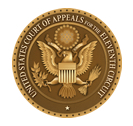On October 31st, the Tax Foundation released the 2025 State Tax Competitiveness Index, which ranked states’ overall tax systems and certain individual taxation categories. The index considered several criteria for ranking states, including tax system complexity, aggressiveness, and structure. Additionally, the index considers corporate income, individual income, sales, property, and unemployment insurance taxes in the overall rankings.
In August 2023, Governor Wes Moore said, “Maryland has some of the best talent and assets in the world. But our economy is not reaching its full potential [...] The time for discipline is now.” Throughout his tenure as governor, Moore has continued claiming the state needs to make “difficult fiscal decisions.” Still, while he has continued to tout the need for budgetary discipline, Maryland’s government continues to fail to have enough discipline to create a competitive tax environment. This is why it is the fifth worst state in the nation in terms of “tax competitiveness.”
Maryland’s poor ranking is not entirely new, as it has been considered one of the ten least competitive state tax environments since 2020. However, according to the Tax Foundation's new analysis, Maryland’s score has worsened since then, so that it is now ranked 46th in the nation. For some states, being uncompetitive on taxation may be acceptable. For example, Hawaii is also poorly ranked, but few states compete for people and businesses with Hawaii. Maryland, however, has four states bordering it, as well as the capital. Except for DC, every state bordering Maryland is ranked at least 12 spots higher for tax competitiveness.
Virginia, in particular, is a competitor for businesses and people looking to live in the extended DC area. Its overall state taxation competitiveness ranking is 28th, 18 places better than Maryland's. Unlike some states with few or no bordering states to compete with, Maryland’s competitiveness with other states will heavily impact how many people and businesses vote with their feet.
Examining the index, it is clear that Governor Moore must do more than he has thus far if he wants to improve Maryland’s very poor tax competitiveness ranking.
Because the index considers so many taxes, Maryland’s overall scoring is poor for a multitude of reasons. Firstly, Maryland’s income tax is very progressive, with a high maximum tax rate of 5.75%, meaning higher income earners will want to live elsewhere. Additionally, standard deductions and personal exemptions are relatively small in Maryland, and there are no tax adjustments for inflation. Thus, as the U.S. dollar’s value declines due to inflation and wages are adjusted to match that, even working-class Marylanders will slowly move into higher tax brackets.
Maryland’s corporate tax rate is 8.25 percent, significantly higher than Virginia, West Virginia, or North Carolina’s. Maryland’s inclusion of a global intangible low-taxed income in its corporate tax base makes it rare among the states. This means that even profits from non-U.S. companies owned by Marylanders are taxed at the state corporate tax rate, which many other states do not require, including Virginia and Pennsylvania.
Lastly, Maryland’s tax complexity is much higher than other states. It is the only state in the country to impose digital advertising taxes, which are difficult to navigate and comply with. Although this tax only went into effect in 2022, multiple lawsuits have already been filed contesting the law behind it. Maryland is also the only state in the country with both estate and inheritance taxes, with high maximums, further incentivizing wealthy taxpayers to leave the state.
While many of these tax policies existed before Gov. Moore entered office, a governor showing proper fiscal “discipline” should fight to reduce these taxes. Moore should pursue the fiscal discipline he advocated for at the start of his administration and increase Maryland’s tax competitiveness. Otherwise, the state will continue to lag behind its neighbors economically.














%20Image.jpg)




